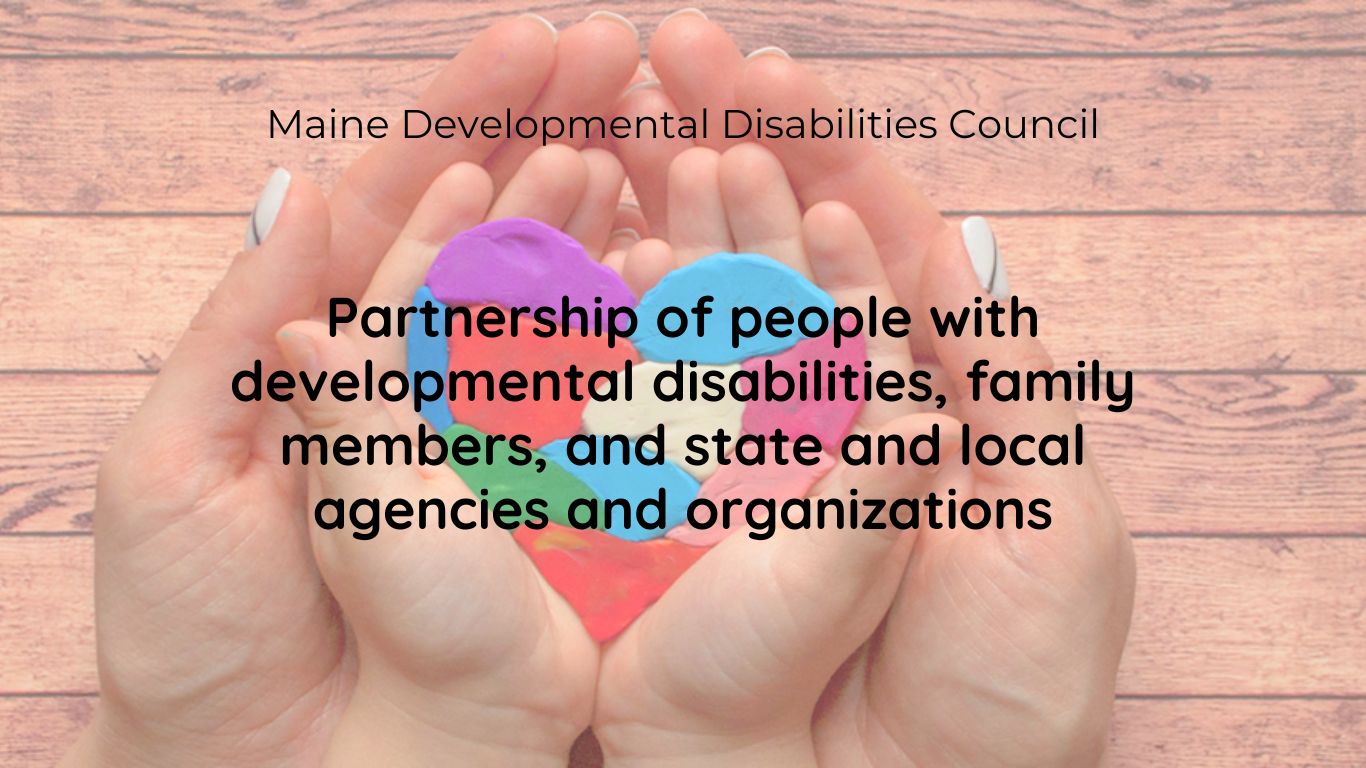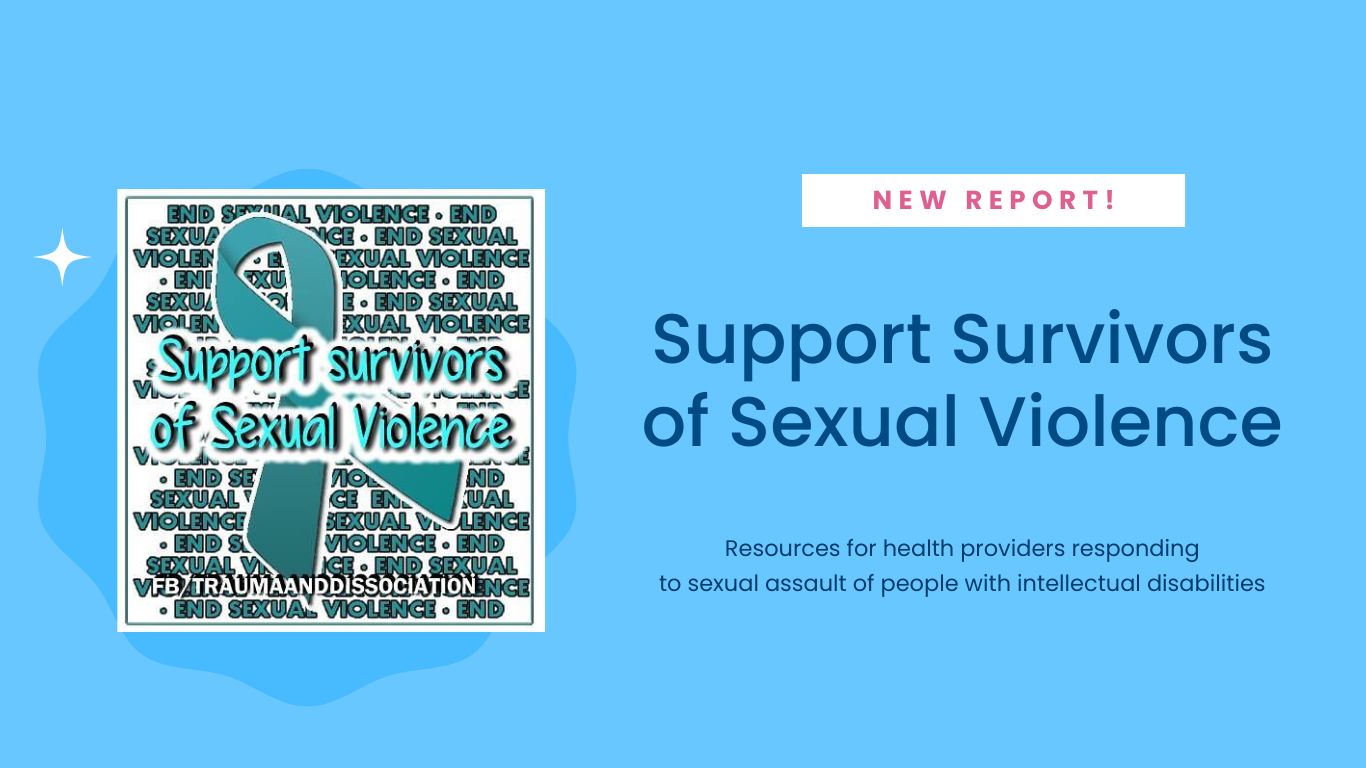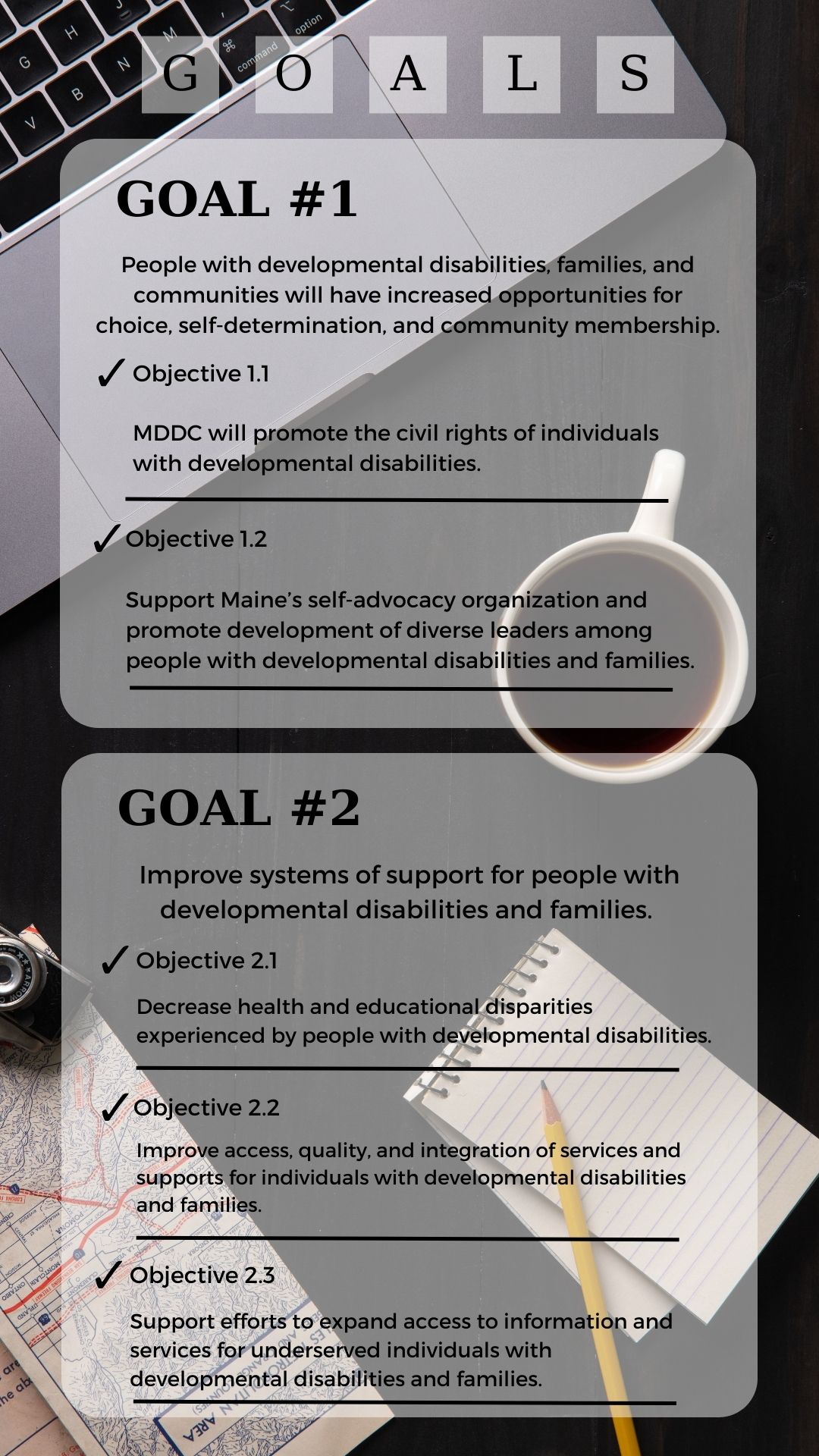Project
CONNECT
Maine Developmental Disabilities Council

Customize your view of the website and explore!

Welcome to the Maine Developmental Disabilities Council
We are committed to creating a Maine in which all people are valued and respected because we believe communities are stronger when everyone is included.
To do this, we create and support policy advocacy for individuals with developmental disabilities.

ANNOUNCEMENT
Click here for Updated Voter Resources!
Upcoming election on November 5th

NEW Reports and Publications!
Empowering the Future - MDDC's 2023 Annual Report
2024 Annual Report to the Legislature

Please check out our history and the variety of resources on our site.
Our latest project, Out of the Shadows, can be accessed through the link below.
Out of the Shadows is the story of a mental institution in the State of Maine and includes interviews with residents now living in the community.
Maine Developmental Disabilities Council
2022-26 State Plan
Goals and Objectives





